|
Come, look quickly! But don’t make a sound, lest he hear us and ignite our matchstick limbs.
There! There he is: the dragon who fancies himself St. George! I want you to remember this day forever, my dear girl. Remember it by the heat crisping your skin and the smoke smiting your eyes. Etch it onto your bones, so the next time someone simplifies the creature before you as a mere saint or beast, you may unfurl the scrolls of your skin in citation. And with the proof in your memory and on your humanity, tell them the truth: That there is nothing more tragic, nor dangerous, than a bad man who believes that he is good. When villagers villiniaze the beast, it’ll be your responsibility to remind them that no one was more surprised to find the princess charred than the dragon himself. Paint for them a picture of the dragon’s horror at the bones and bits smoking in his clutch, where just moments before his muse had languished. Remind them that if they hadn’t been taught how to have and to hold, they might have grasped with palms of fire too. The villagers may never accept what you tell them, for it’s easier to understand ashes and rubble in black and white. Tell them anyway. Even more daunting though, is your responsibility to explain to the creature himself that the scorched earth in his wake makes him more serpent than blessed warrior. He won’t take the news easily. He might curse you in fiery tongues, excusing fatalities as collaterals of a holy war. Or, in an instinct of fear and honesty, he may cower over his pile of gold and jewels with his whole massive being. If he bellows about how these treasures are his God-given right, do not hate him but rather, pity him. Difficult is the path of the man or beast who believes that God’s greatest intention for him is possession. My dear, my warrior-princess! Do not let yourself be held by dragons but do not be afraid of them either. Most dragons are just saints on fire. Cool them with your mercy.
0 Comments
A virus poem:
Sometimes I can see it, sometimes not.
But I can always hear it. The sick, sharp “zap, ZAP” of my beloved ladybugs frying against the light bulb. And then the almost imperceptible “ding” as they fall and pool on the basin of my ceiling light. Well. I say “almost imperceptible” because sometimes, their descent can actually be a bit loud. They seem to fall louder when they all fall at once. I fall asleep to the sound of the ladybugs’ midnight production of Icarus and wake up to twenty or thirty sets of wings huddled lifelessly on the fixture above me. It’s the first and most terrible thing I see each morning. Polka-dot silhouettes, spelling out some sort of jest or warning. Some sort of plea or vendetta. So I say a little prayer before I roll out of bed. Counting their corpses like rosary beads, I pray to learn from their mistakes and laugh a twisted laugh at the simplicity of the solution. I unscrew the light bulb. I’m content to live a little dimmer, if I can live with my ladybugs. 1.
Early this morning, I woke up and went to Houghton Pond with my best friend Miriam. She set off on a ten mile run and I sat by the water with my copy of John Muir’s “Wilderness Essays”. I had forgotten my phone at home but I knew that her run would afford me two hours or so to read. A welcome distraction from the news cycle on repeat on my palm and in my brain, I dove in. And then I dove right out. “Wilderness Essays” is a ten piece collection of Muir’s most famous pieces. In less than 300 pages, this book chronicles his adventures all the way from the peaks of Yosemite to the forests of Oregon. The first essay though, is a vivid description of Muir’s discovery of Alaska’s Glacier Bay, home to over a thousand glaciers spanning over five thousand miles. His story is riveting. Muir’s ability to communicate natural beauty is unmatched and his commitment to noticing and celebrating minute details in the wilderness around him makes me wonder if I’ve been walking around the world with my eyes half-closed all this time. John Muir makes me want to love the Earth even more than I already do. But after about twenty pages, I closed my book. Reading Muir’s description of the towering glaciers dripping slowly over his party’s humble canoe took the breath right out of me. His company had packed more than enough food for the journey. They had pledged to each other’s wives that they would sacrifice their own lives for each other if that’s what the wilderness asked of them. They had done everything right. But at the end of the day, their fate still belonged to the slow drip hanging over their heads. Like a liquid noose or a bullet made of ice, they spun the Bay’s revolver each time they set out for more adventure. I closed my book because Muir’s adventures in Glacier Bay seemed eerily akin to this last week of confusion and hysteria. There was something similar in the tension - like being waterboarded with an eye-dropper. 2. No longer interested in my book, I decided to just take in the morning around me. Surely, Miriam only had an hour or so left to her run at this point. Almost providentially, a father and his two sons came to the waterfront to satiate my hunger for people watching. The boys ran up and down the shore while the father looked on, smiling. And then suddenly, not smiling. “MILO!” he screamed at the littlest one. “Milo, what did I tell you? No touching the muddy water!” I took in Milo’s soaking boots. He had indeed touched the muddy water. “I said we could only come to the pond if you promised not to touch the dirty water! Now look at what you’ve done, you’re soaked and covered in mud.” Milo hung his head in shame for an obligatory moment of silence and then gleefully hopped back in the water. I couldn’t tell why or how he was so unbothered by his father’s chastenings. It was either a deep anarcho-capitalist torch burning within him or just because he was four years old. Possibly both. Hard to tell all the way from my bench. I saw what happened next coming but unfortunately, his father did not. Milo sprinted over to his brother, who had been obediently staying a foot away from the shore, and in one deft motion splashed him with an armful of pond water. I guess some people just want to see the world burn. “MILOOOOO”, his father bellowed. I wondered if he had chosen his son’s name with it’s bellowing potential in mind. While I wasn’t a huge fan of his parenting style, I give credit where credit is due and so I have to admit: the man had an ear for acoustics. Now Milo and his brother were both wet and muddy. Despite his father’s howls, Milo seemed delighted with himself and his day at the beach. If I’m being honest, his brother seemed alright too. But as their father announced that their day at the pond was officially cancelled, Milo’s face fell. It seemed that he had only considered the consequence of getting dirty, and not the possibility that he might lose out on mud altogether. 3. People of all walks of life passed by my bench as my stomach began to grumble. I knew Miriam would come soon but without my phone, I had no idea when “soon” would be. The pond seemed to draw in every possible type of person. White, black, asian, hispanic. Straight couples, gay couples, single people, friend groups. People from all different socio-economic groups and geographic origins. Here’s what I noticed: those who have, by nature of their very existence, walked with injustice their whole lives are now more emotionally prepared to jog in step with her step-sister: uncertainty. There was a very sweet, young asian couple that asked me to take a picture of them and their baby by the water. There was a black mother walking laps around the pond with her children. There were two fathers and their toddler daughter playing in the sand. None of them were being unsafe, but none of them showed any signs of being upset when their children inevitably ended up in the muddy water. It seemed to me, that they had known muddy water before. I began to suspect that there may be a positive correlation between being brave with mud and being brave with the world. As I write this, I suspect even further that being both those types of brave will prove to be a huge asset in the coming weeks. 4. Abandoning my post for a few minutes, I headed to the bathroom in the park’s visitor center. I was nervous, as I have been every time I have used a public bathroom this past week. As I wrapped my sweater around my hand before turning the bathroom’s door knob, a sign on the park’s announcement billboard caught my eye. The sign was there to remind visitors to look out for ticks. As someone who grew up in New England, I’ve always been on the lookout for ticks. My childhood was colored with long socks and complaints when my mother insisted on checking the back of my thighs for the little bastards. Lyme’s disease is an evil I was made aware of from a very young age and despite my mother’s best efforts to keep it out of my life, it came anyway. It came in arguably the most heart-wrenching way, which is to say that it came for my very best friend. And if we’re all being honest, that’s the real fear with disease, isn’t it? Not that it’ll come for us, but it’ll come for the ones we love most. She has suffered and conquered and suffered and conquered and suffered and conquered. She has done so bravely and will continue to do so for the rest of her life. Not unlike those mentioned before, her braveness will be an asset not only to her, but to her community. It will be an asset through the next few weeks, and hopefully for the next sixty years. Seeing that sign reminded me that despite the scandal of this past week, I’ve been running from disease since forever. Returning to my bench to wait as Miriam finished running ten damn miles reminded me that even when disease does catch you, you can still run. I whispered a prayer, thanking the bulletin board and my best friend for making me less afraid. 5. It’s worth mentioning that in my two hours at the beach, close to a hundred dogs walked by me. I am happy to report that our nation’s canines seem valiantly unphased. 6. I sat on the bench and wondered what time it was. Mir had to have been gone at least two hours now. I knew it wasn’t just ten easy miles she was running today - she had chosen to run her miles on the Skyline trail, with a total of over 2,500ft of elevation gain. No wonder she had been gone so long. But how much longer would I have to sit on this bench alone? I was bored, despite not really having done anything all morning. Actually, maybe I was bored because I hadn’t done anything all morning. I thought about asking someone what time it was, but decided not to. Knowing how long something will last doesn’t make it go any faster. Miriam would take as long as the trails took. There is, as I’m sure Muir would agree, no use in trying to measure the relationship between man and nature. He was after all, a poet. Nature will always be bigger and more powerful, but man will always have more skin in the game. And if that isn’t poetry, then I guess I don’t know what is. Man versus nature is really anybody’s game. Who will come out on top, the glaciers or the explorers, is entirely dependent on who works the best as a team. Impossible to tell in the first half, this eternal struggle is at its core: a slow-drip. 7. Miriam arrived. I stood on top of my bench and jumped up and down, cheering her on. I didn’t ask her what time it was because it didn’t matter. All that matters was that she had arrived. As I picked up my book and patted my bench an affectionate goodbye, a white bird swooped over the muddy water and then headed back into the sky. The introduction of his imagery was too sudden, too fleeting. I couldn’t tell if he was a white flag waving in surrender or a symbol of hope. Maybe both. 8. “But it is in the darkest nights, when storms are blowing and and the agitated waves are phosphorescent, that the most impressive displays are made.” - John Muir, “The Discovery of Glacier Bay” “You have a good life, you know that?”
Once again, Landlady Kathy had caught me. I was trying to sneak out to grab lunch, but right when I thought I’d successfully snuck by Kathy, she appeared with a seamless spin around the staircase knob. “Take those damn headphones out and listen to me, girl.” I pulled my headphones out and sat on the third to last stair. Might as well get comfortable. “You have a good life, coming and going whenever you please.” I nodded in agreement. “I used to have a good life”, Kathy muttered. I rolled my eyes. “Kath, you DO have a good life.” And that’s when my landlady flipped me off and began her story: “I’ve told you about the Jew?” I shifted uncomfortably. It always made me uneasy when she named the people in her stories after their races or religions. I tried to chalk it up to her generation, but then again, this was the same lady that regularly referred to me as “The Stripper”, so maybe this was just how she talked. “You mentioned him once.” “Well the Jew, I was his kept woman. Things were different in those days. He had a wife, a famous actress. And his daughter-in-law, you definitely know his daughter-in-law from TV too.” She told me the name of the TV show that the wife and the daughter-in-law had starred on together. I smiled and told her that my mom and I used to watch their show every night together growing up. “Yeah, the wife was a talent. But she wasn’t the love of his life. I was. And he was mine.” I smiled nervously. Sometimes Kathy’s stories cast an ominous spell over my own aspirations. Truthfully, I sometimes wondered if she was some sort of Ghost of Christmas Future, sent by God to warn me what happens to girls who don’t leave Brooklyn before they turn thirty. “I was his mistress for eight years. Eight whole years. And then one night, he invited me to his son’s Bar Mitzvah. And Clarey Girl, if you coulda seen it. It was 1965 in New York City and it was just…” She paused, smiling at a memory that I couldn’t see. “It was just so” - she interrupted herself with a sharp intake of break - “just so glamorous.” I squinted, trying to peek in on the black and white movie projecting out of her pupils and on to the exposed brick wall. “And at the reception, after the Bar Mitzvah, all the lights went out. I thought it was the Gambino’s come to collect for once and for all. But then, two lights appeared, slowly sliding on to the dance floor. And God strike me dead if I’m making this up, the Jew’s whole family came riding right on to the dance floor in a custom Ford Model T.” I shook my head in disbelief. “Wow.” She kept staring at the wall behind me. Her expression softened and she explained: “That’s when I knew I couldn’t do it anymore. I saw that kid in the car and I just...I just couldn’t do it no moret. Couldn’t be his bit on the side no more. It had been nice to be taken care of for once in my life - steak dinners, trips to the Copacabana on Broadway, all those beautiful dresses. The dresses always came in boxes tied with ribbons. I think I would have loved him just for the ribbons, I do. But after seeing that kid, I just couldn’t do it anymore. I was so ashamed of what I had done.” My heart broke for her. She had grown up dirt poor, spurned by the family of her father’s child, and left with no choice but to move to the city and send money back home to her son and mother. She was miles from her family, and for the first time in her life, she was the object of the affections of a man who could provide for her. He gave her the world, but it wasn’t her world to take. It wasn’t right - adultery isn’t ever right. She knew that, and so do I. But it would be absurd for me to pretend not to understand the hunger that drives a broke and terrified New York City girl to reach for something better than she’s ever tasted before. Even if it’s not meant for her plate. She brought me out of my reverie with a continuation of her story. “I broke it up after that, but I broke it up all wrong. I’ll never forgive myself for that. I did it all wrong. I hurt him too deep. I shouldn’t have done that.” My voice fell to a whisper as I asked: “What did you do?” She shook her head. “I cheated on him. With the Puerto Rican.” I smiled and found a moment of brevity in my 84 year old land lady’s inability to characterize anyone by anything other than where they came from. If you asked me, the “greatest generation” needed a greater dictionary. “He was so handsome. But of course he was. You ever met a bad looking Puerto Rican?” I rolled my eyes and shrugged. It was true though, God had made Puerto Rico beautiful in every way. “So I brought the Puerto Rican to a club where I knew The Jew had friends...so people would see us together and tell him. So he’d know I was cheating on him. So I’d have a way out.” My eyes widened. I had known for sometime now that Kathy used to hold money for the Gambino family, but I guess I’d never really expected her to be this gangster in her personal life. “And sure enough, it worked. I walked right in, flashed my two dollar bill -” She noticed the confusion in my eyes and explained. “It was a private club. Your key to entrance was a two-dollar bill. Like I said, the sixties were much more sophisticated than now. Anyway, I got myself and the Puerto Rican into the club, and sure enough, word gets ‘round to the Jew. He came to my apartment that night and confronted me, all mad.” I could see it playing in front of me. It was cinema quality: Kathy, in her twenties. Red lipstick and a Bridgette Bardot hair-do. Maybe even throwing her pair of little white glovers on the ground in frustration as she lied to the Jew that she didn’t love him. She had never loved him in fact, and that’s why she was cheating on him with the Puerto Rican. She said he cried. She said she didn’t. He said goodbye by giving her a copy of the record to “The Sky Above, The Mud Below.” She asked if I had heard of it. I hadn’t. Before finishing her story, she took a long drag of her cigarette. “He moved to Florida after his wife, the actress, died. Remarried a barmaid I used to work with, whole marriage lasted no more than three months. He calls me sometimes. Asks me to come down and live with him. And I’d like to, but of course I’ve been with my husband now for 46 years, so.” I closed my eyes, refusing to accept that, sometimes, this is how stories end. When I got back to my apartment, I looked up the song The Jew had given Kath on that last record. It wasn’t what I had expected at all. It was an old-timey western, the story of two long haired horse thieves who tried to hold up the Saloon of a Preacher named Deacon. But to the thieves surprise, it’s Deacon who whips out his gun first, sentencing them to death by singing: “The Old Testament, it says somewhere, an eye for an eye and hair for hair, covet not they neighbors mare.” The song ends with Deacon cutting of the thieves long hair and braiding it into nooses for their final judgement. I guess all of this is to say: You ever draw your gun too quick, or maybe not quick enough? You ever break your own heart, or hang yourself with your own hair? This morning, I awoke to messages from strangers, alerting me that my face had been photoshopped onto naked pictures and posted on a porn site with over two millions and viewers. The pictures are down now - but in the moment, I felt so much shame and embarrassment and fear. The pictures had been posted next to screenshots of my real information. Viewers had my name, workplace, and hometown. Chillingly, all of the posts seemed to be religiously motivated, fetishizing my beliefs.
That’s the less interesting story. The more interesting story is about the lady in the second photo. Kathy started as my landlady, but has quickly become a grandmother figure to me. When I told her what had happened and showed her the pictures the first thing she said was: “Sorry baby, but that don’t look like you. Your tits ain’t that big.” The second thing she told me was the story of her first love, Eddie McCloskey. She was a cheerleader and Eddie was, of course, the quarterback. When they were 17, they tried to elope - but when she arrived at the Bethlehem, PA train station, Eddie wasn’t there. To her horror, his mother and sister were waiting instead. His mother slapped her in front of everyone at the station and his sister demanded that Kathy return every gift Eddie had ever given her, including “that 12 Cent engagement ring turning your finger black.” His sister told her that the cheap ring was turning her finger black because Eddie had never really loved her at all. Kathy was shamed and embarrassed by Eddie’s family in 1952, sixty-seven years ago. I was shamed and embarrassed by an anonymous coward, today. But as I sat in Kathy’s living room and listened to her recount the day she thought her life ended, I looked around and smiled at the life she had began anyway. After being stood up and put down, Kathy Garcia moved to New York City and became a bar maid. She dated, she married. She had a son, and then grandkids. Kathy is my land lady and my friend - and today she was a reminder that no person or situation can take away my ability to make something beautiful. Love replaces fear, and strong women replace 12 Cent engagement rings and bad photoshop jobs. I peaked around the corner before heading up the first flight of stairs. There she was, floating in a cloud of cigarette smoke and coffee stains.
At first she didn’t recognize me, which was fair, because I had been gone for a full month. But then all of her wrinkles reassembled into recognition and she grabbed my face with both hands, narrowly missing my cheek with her lit cigarette. “MY CLARE!” I sat down cross-legged as my 84 year old land lady filled me in on all the gossip I had missed while I was gone. She asked me how I had liked “nasty old Florida”. I told her how much I had loved it, and in a moment of vulnerability, I told her how much it had meant to me to have Catholic community down there. She took a drag and asked without a hint of malice: “Are the Catholics in New York mean to you because you’re a pole dancer?” I couldn’t help but grin. Despite knowing that I run a religious education program for a living, Kathy believes that I earn some extra cash...another way. She had first let me know that “she knew I danced for men” a few months back and in a moment of mischievousness, I hadn’t corrected her. And truthfully, I’m glad I didn’t - and not just because Kathy is the only person in the world who thinks I can dance. Kathy and I go to the same church. She even prays the rosary with me - but she’s never once questioned whether or not the “stripper” in Apartment 19 has a place in her Church. I’ve had people in the Church treat me so cruelly for a million much smaller offenses against modesty or purity, but my octogenarian landlady treats me kindly despite her suspicions. I tell myself that I still haven’t corrected her because it would just be too confusing at this point, but truthfully, I think I haven’t told her because I crave her radical mercy and constant invitation. I needed someone to tell me that as long as there’s room on the stairs for coffee, cigarettes, and conversation, there’s room in the Church for broken people who love God. For strippers and their clients. Tax collectors and their debtors. Addicts and their suppliers. For land ladies and their tenants, praying on creaking stairway pews - radical mercy extends to all.
Everytime the bartender handed me a straw, I pretended it was something new.
The first time, I just opened my mouth and pretended he was lighting me a cigarette. “These damn things’ll kill me yet”, I muttered, taking a long drag of black plastic. The next straw, plucked out of a drink he made me, was a flower. I tried to playfully tuck it behind my ear, but instead dropped it on to the sticky bar floor. He rolled his eyes and plucked me another straw from a bouquet of ‘em he had stashed in a whiskey glass. I opened my mouth and planted it like a daisy, square between my smile. Turning to survey the bar, I found my friends and opened my mouth to call them over. Out fell the straw. “Mister Bartender, please don’t kill me but I -“ He was ready this time though, a new straw already dangling between his fingertips. I clicked the end of this new straw with my thumb, imagining it a ball point pen, and began to ink my next poem in the soft wood of the bar. “What’re you doing?” he laughed. I chewed on the edge of my straw-point-pen, sipping inspiration for it’s next manifestation. “Writing about you” I said, holding out my palm, hoping he’d understand what I wanted. He reached behind the bar and presented a handful of straws, rolling them on to my outstretched hand like a pile of Lincoln Logs. I smiled at my handful of cigarettes and flowers and pens and Lincoln Logs. I could really build something with this. I met him through a friend. Through a bunch of friends, really. He was everyone’s friend before he was my friend. It’s not worth telling you what his real job is, because if you’re not from here then you just won’t get it - but all you really need to know is that he’s basically The Man You Go To When You Need Something. And there’s a tall stool behind his work bench, but it’s not for him, ‘cause men in his position do much better standing. Standing and walking, standing and selling, standing and buying. Standing, always. No, that stool is for whoever the “lucky girl” is, and that wasn’t me. It wasn’t that I was unlucky - he and fortune favored my friends and I pretty well, pouring us tequila shots into little medicine cups every time we stopped by. But I had never been lucky enough to be the girl sitting on the high stool, watching over the counter, watching over Brooklyn, watching over the world. And that was fine, I convinced myself, ‘cause I’m not much of a sitter or a watcher anyways. Until one day, I was invited on to the stool. To sit, and watch. And I realized that New York City feels a little different when you’ve been offered a seat at the table. Feels a little different when you get a break from the running and the hustling, and someone asks you to sit. Feels a little different to be a little higher than the rest of the room, and to just be still. It was the first time I had really felt “invited” in New York City and I felt immovable, impassable - ineradicable. It felt like I finally had a seat at the city’s table, and it felt like now that I had this seat, nothing could move me. |
sTORY CATEGORIES
|
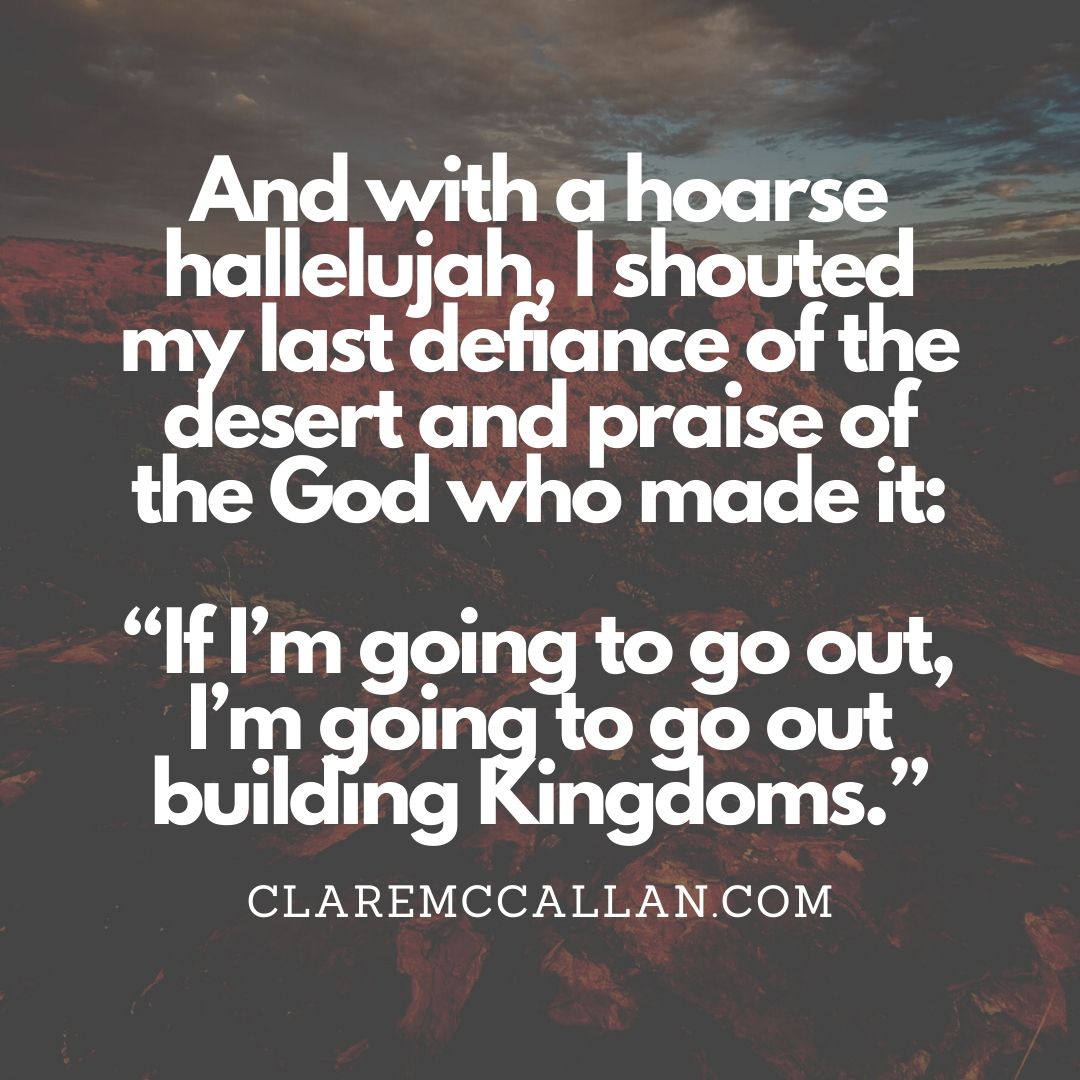
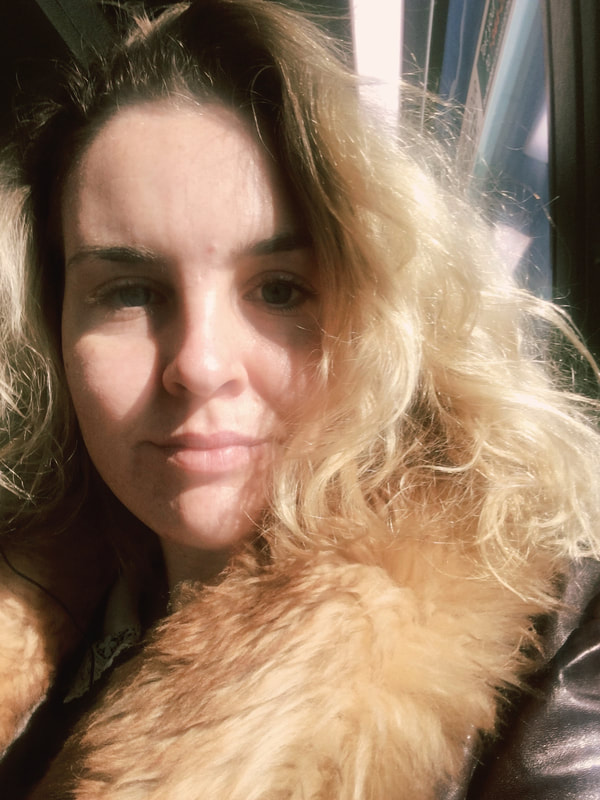
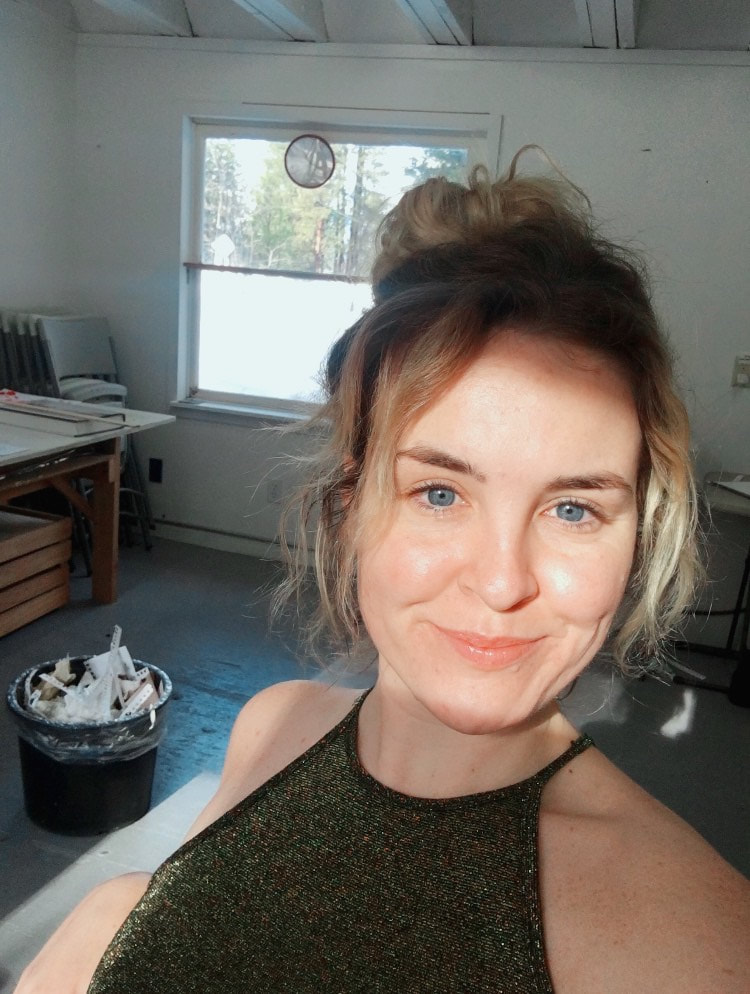
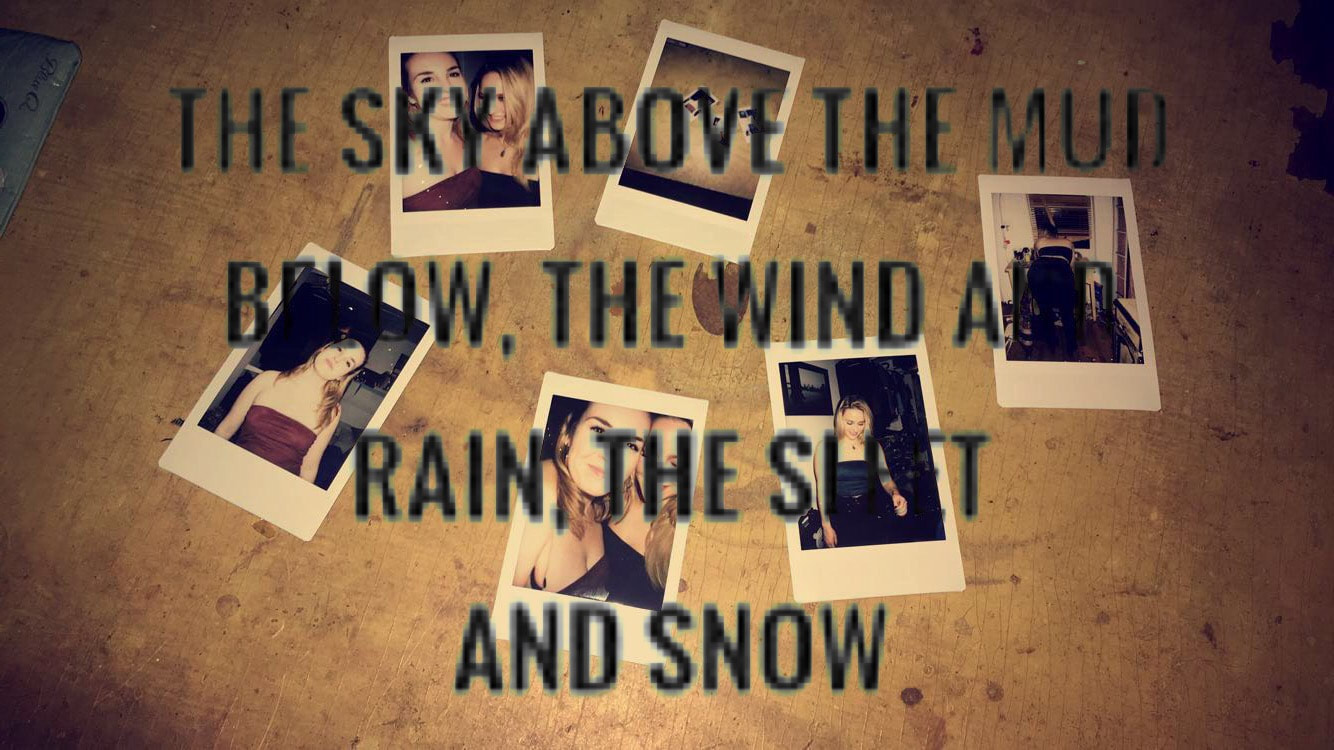
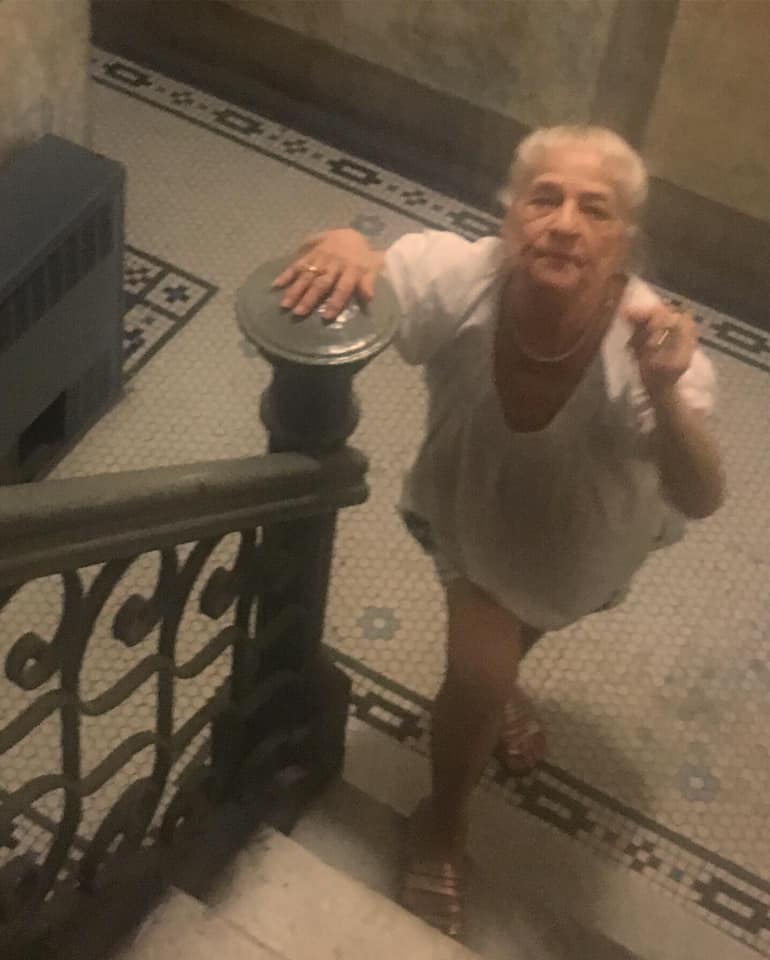

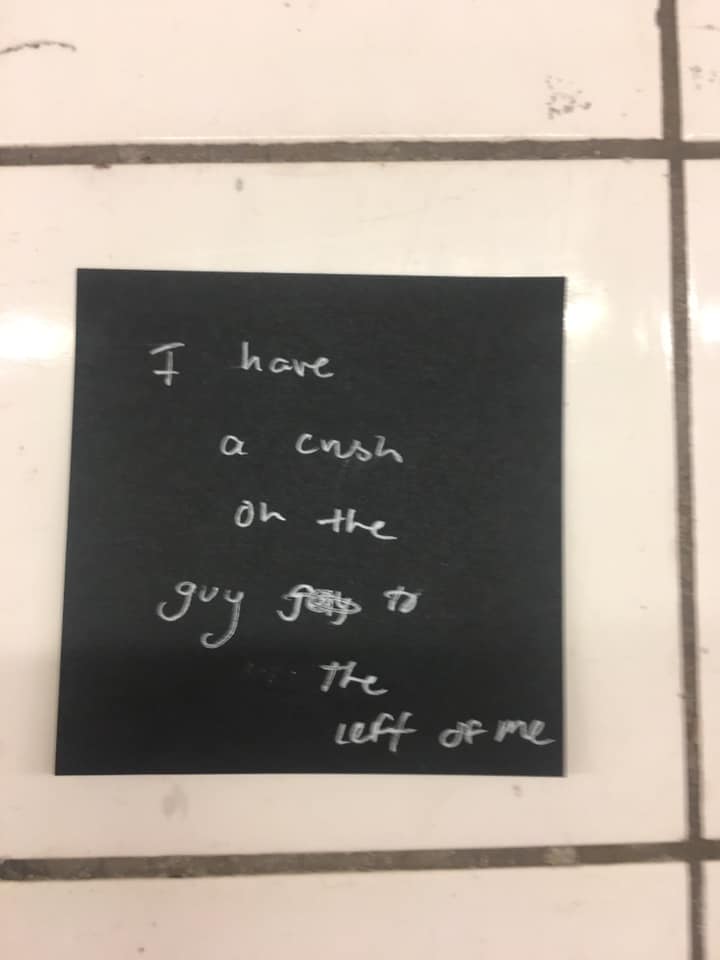
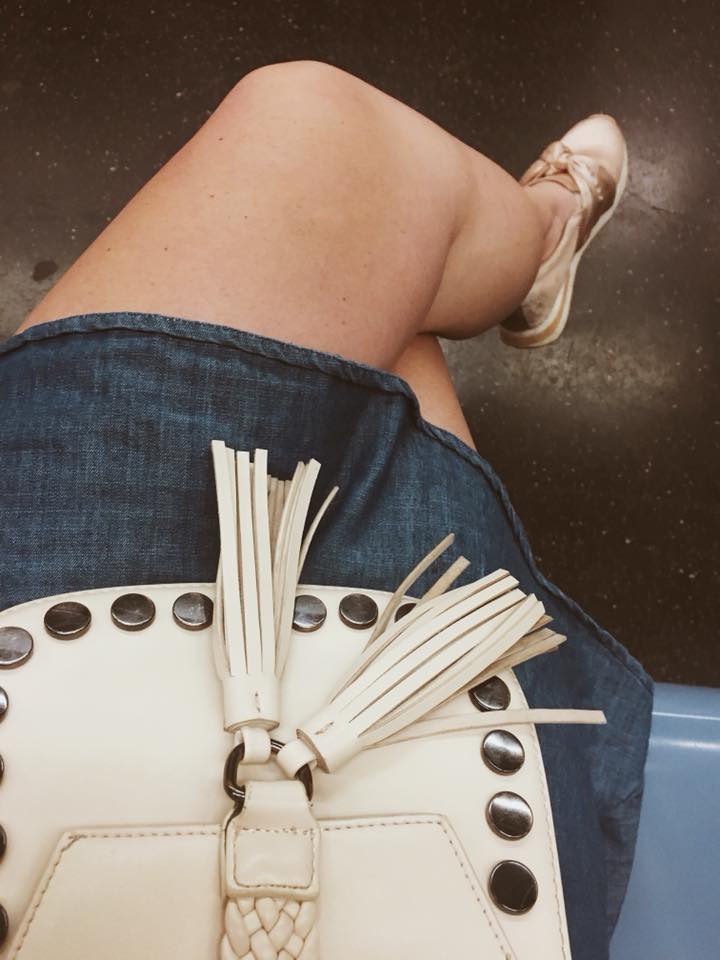

 RSS Feed
RSS Feed